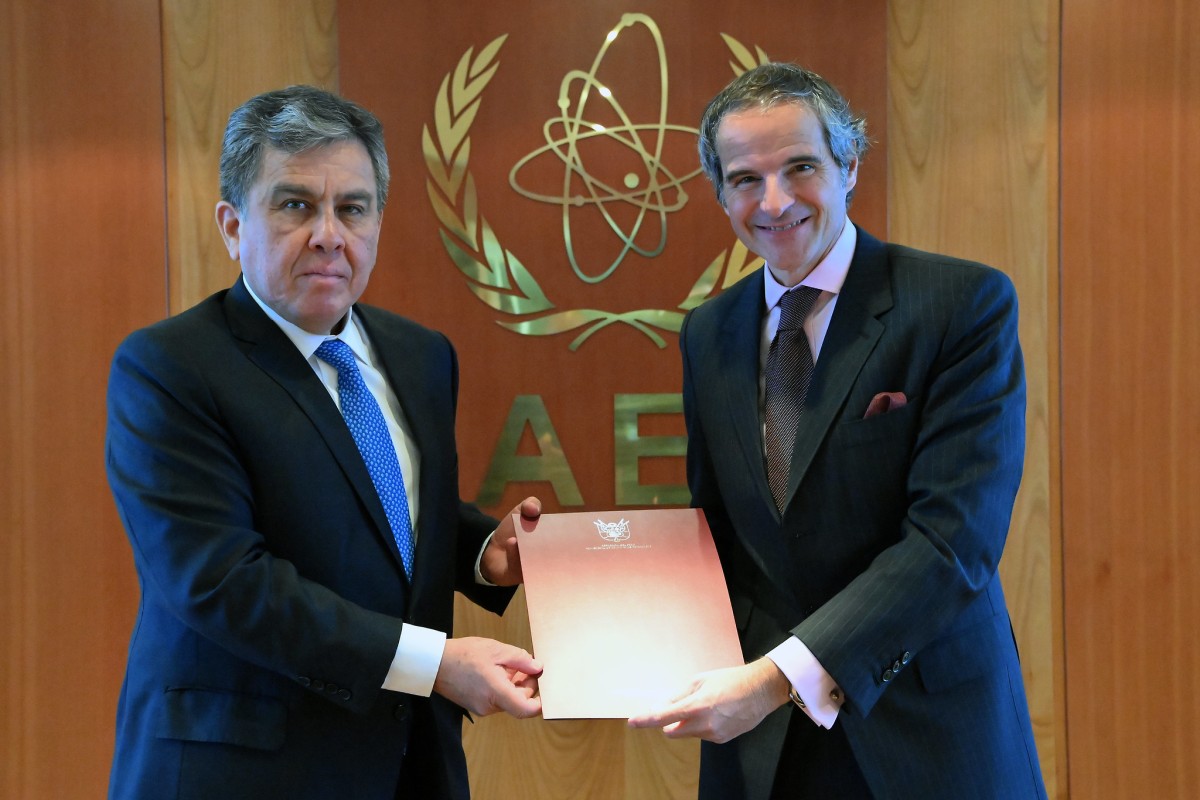Sponsored Content
IAEA Chief Grossi Visits Peru: Agreements on Nuclear Technology for Food Security, Mining and Lithium
Rafael Mariano Grossi, Director General of the IAEA, signed agreements with Peruvian Foreign Minister Javier González-Olaechea to promote nuclear technology use in food security, health, and environmental protection.
 The Resident Representative of Peru to the IAEA, HE Mr. Luis Alberto Campana Boluarte (l.) with IAEA Director General Rafael Mariano Grossi (r.), at the Agency headquarters in Vienna. / Picture: © IAEA International Atomic Energy Agency / Dean Calma / Flickr Attribution (CC BY 2.0, https://creativecommons.org/licenses/by/2.0/)
The Resident Representative of Peru to the IAEA, HE Mr. Luis Alberto Campana Boluarte (l.) with IAEA Director General Rafael Mariano Grossi (r.), at the Agency headquarters in Vienna. / Picture: © IAEA International Atomic Energy Agency / Dean Calma / Flickr Attribution (CC BY 2.0, https://creativecommons.org/licenses/by/2.0/)
The Director General of the International Atomic Energy Agency (IAEA), Rafael Mariano Grossi, has signed important agreements during his visit to Peru to promote the use of nuclear technology in the areas of food security, health, and environmental protection. The focus of the visit was the signing of a Memorandum of Understanding (MoU) with the Peruvian Foreign Minister Javier…
or Log In
Fast News Search





